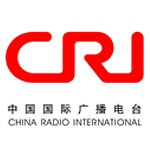
For most foreigners who just come to China, they have very limit connections. For many Chinese job seekers who sent thousands of CV with no reply, there is a great way of connecting with others that people are accustomed to. There arises the social networking event. So if you go to the right event and perform in the right way, you might just make big step forward on your career!
In this Career Builder show, hosts and hostess from the studio will discuss this topic with Ruben van den Boer, a manager and an experienced recruitment specialist of RMG Selection. As a Dutch expatriate who have been in Beijing since 2009, Ruben actually went through the whole stage from knowing very few people to getting well acquainted with a lot of people in his career. He believes networking events are really important for everyone. Through social events people get the chance to talk to and get to know each other. Moreover, they have high probability to build positive RAPPORT in networking events.
Curious on how Ruben kicked start his awesome career? Want to know what networking events can help you further develop your career? Mostly importantly, how to make your networking really WORK? Listen on, through the following questions you will pick up a lot of practical and helpful tips to build your career!
- Have you come across the terminology “Guanxi”? Please give us your take on this term?
- There is a difference between “Guanxi” and Networking. “Guanxi” absolutely does not equal to networking.
- Networking is about building rapport and building a long-term relationship that is based on trust.
- What are specific approaches to leave others the impression that I am an asset to the company not just someone who begs for jobs?
- SECRET: everyone’s forehead is written a sentence which is “I want to feel important”. Few people are interested in others’ stories; most people are only interested in their own stories!
- Everyone has a little ego in themselves. To begin with networking, you have to be a good listener instead of a speaker.
- The more others share about themselves, the more connection they can feel with you. There are always problems or emotions. Then you are allowed to get involved and talk about yourself.
- People do business with people they like. Business is about LIKING people.
- What if I disagree with the topics or arguments of someone in the networking? And in the position of a listener, how can I direct the topic?
- Everyone is able to build chemistry. Find right topics.
- In terms of directing a conversation, for example, if you talk about job seeking, from personal stuffs you can talk about the company, the structure, the team or even their problems in life.
- At some point of the conversation, you can introduce yourself as a solution. Or you can present yourself as someone who fits what s/he is looking for.
- For someone who is very shy, how can s/he butt in a conversation and chat up with others?
- Everyone can be shy. You have to get out of your shell if you want to network.
- Think about worst of all what could happen. On the other hand, also think about what if it is the best scenario.
- If you are really shy, then just be a good listener!
- Do you have any advice for aggressive people?
- Don’t be too aggressive, otherwise you will push people away.
- Train yourselves to HOLD BACK.
- Silence is golden! Have a moment of silence somewhere.
- What kind of events do you recommend and where can people access to these social networking events?
- Morning events from Chambers of Commerce (from different countries) for business purposes.
- You can apply for newsletters from different chambers. Check up their websites or social media channels (Weibo or WeChat).
- Expats communities like the Dutch society or groups of other countries sometimes have excursions or networking events on a casual level.
- Can people apply for jobs or send resumes in Chamber networking events?
- The answer is not to do it. Applying for jobs is different from networking.
- A good channel to apply for jobs is on LinkedIn.






